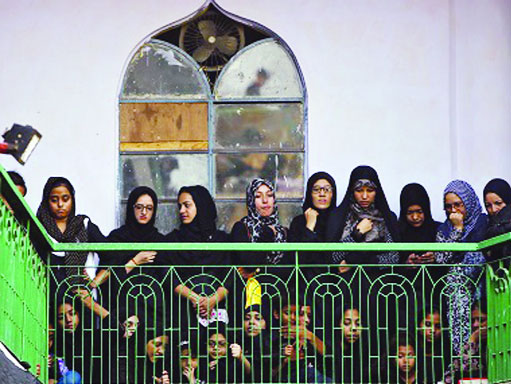SC admits plea on allowing women inside all mosques, citing its Sabarimala ruling on gender parity at faith shrines
All religions are free of gender bias except that rituals and customs associated with their practice have been set by patriarchal orders that have now acquired the solidity of established tradition. And much as shrine trusts try to legitimise the male monopoly as ordained by divinity, fact is seclusionist practices, probably necessitated by their context in the historical timeline, need to change as dynamism is at the core of all religions. For if god created woman to equalise Creation itself, there’s no reason why she should be denied the right to worship and pray. Of course, it is tricky business, especially when it comes to jurisprudence on cultural practices related to religion. This is one of the reasons why the Supreme Court used the precedent of its ruling on Sabarimala to hear a plea seeking the unhindered access of Muslim women to all mosques across the country. The petitioners argued that the Quran “does not differentiate between man and woman. It speaks only about the faithful. But Islam has become a religion in which women are being oppressed.” When it comes to Islam, its own theologians insist that the Prophet believed in the equality of women and allowed them in mosques. Both genders have the equal right to offer prayers at the Kaabah in Mecca. At the time of the Prophet Mohammed, Muslim women participated in wars, worked as nurses and doctors, owned and operated businesses and were actively involved in public religious life, according to Muslim women’s rights activist Naish Hasan. Yet it is the Muslim leadership’s misogynist interpretations of the Quran and Hadith that have a hegemonic hold on authenticity. Any confinement in later years may have been necessitated to protect women from abuse of war and crusades but has now been conveniently codified by radical sects and self-proclaimed groups to stifle reform detrimental to their interests. But women are a valid constituency in the socio-political matrix of our times and are now claiming their religious rights in the public space. So though the apex court argued that a mosque is a non-State entity and the fundamental right to equality could, therefore, be invoked against the State, not against individuals, the petitioners argued mosques do get substantial grants from States. By that logic they are subject to the jurisdictions of courts as they are maintained with public money. And worshippers are as much entitled to personal and religious freedoms as enshrined in the Constitution for citizens. At present, women are allowed to offer prayers at mosques under the Jamaat-e-Islami and Mujahid denominations but are barred from others.
Though the top court took up the public interest plea against the backdrop of Sabarimala, fact is that the Bombay High Court had ruled much earlier in favour of women that let them enter the mosque at Haji Ali. This happened after sustained campaigns. Sadly, the real purpose of these rulings, to ensure that divinity is gender-neutral and equally accessible, has got lost in the sea of rampant politicking and votebank politics. Be it the shrines of Shani Shingnapur, Sabarimala or Haji Ali, women have always had to negotiate their divine right through the legal route. And such battles will end up messy till we effect a mindset change, one where we see the man-woman balance or the prakriti-purush narrative as part of a universal natural order than as part of the limited human domain. The Supreme Court knows this best when it allowed women of all ages to enter the shrine of the celibate Lord Ayappa. A clutch of women devotees and the powerful Nair community claimed that Kerala has one of the highest development indices for women and those of reproductive age stay away to honour the “eternal celibate” status of Lord Ayappa and his asceticism. Though they may have no rationale to explain why their god should not be universal and be selective instead, fact is this cultural marker is now a rallying point, strong enough to gather political traction. What then is most important? A gender-neutral and informed approach to scholarship of texts as well as unity of all affected women’s groups, be it Hindu, Muslim or others, to challenge the obnoxious.


























